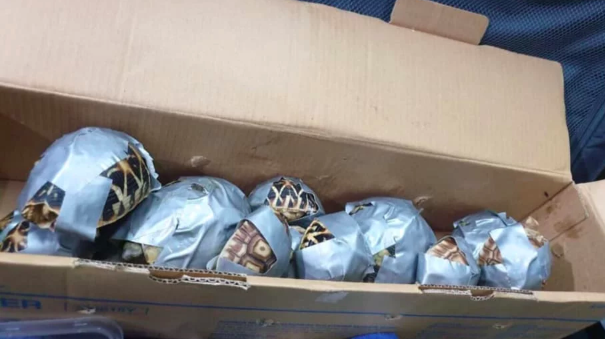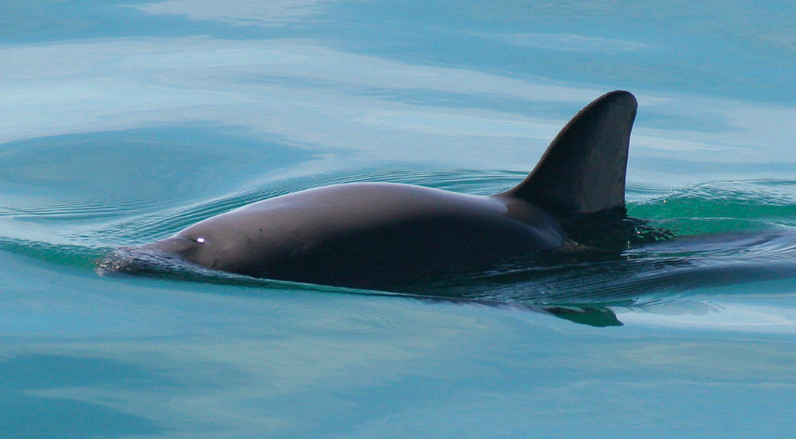
Photo: Bureau of Customs, NAIA
Ironically, just as the world was celebrating World Wildlife Day last weekend, NPR reported that customs officials in the Phillippines on Sunday discovered more than 1500 rare and endangered turtles and tortoises wrapped in duct tape inside four unclaimed pieces of luggage at the Ninoy Aquino International Airport in Manila. The luggage was left by a Filipino passenger on a flight coming from Hong Kong, the Philippine Bureau of Customs said in a statement.
According to the Phillippine Customs officials:
- The confiscated turtles were Star Tortoise, Redfoot Tortoise, Sulcata Tortoise, and Red-eared Slider species — and they were alive and mixed into clothing and other items.
- The passenger may have left the turtles when they realized the penalties against illegal wildlife trafficking and the need to pass through x-ray machines that would have detected the animals.
- Penalties are stiff under Philippine law — violators face imprisonment of one to two years and a fine of up to P200,000.00 or approximately $3800.
- In 2018, the Phillippine government has confiscated a total of 560 wildlife and endangered species, including the 250 geckos, 254 corals, and other reptiles which were smuggled through air parcels, baggage and shipments.
Meanwhile, Ecowatch published a blog written by Andrea Crosta, the executive director of the Elephant Action League, arguing that when the Mexican and Chinese governments stepped up their arrests of wildlife traffickers in China and put pressure on the Chinese traders in Mexico they were able to significantly slow their illegal operations. Crosta urges more enforcement because in Mexico the trafficking is finally declining — the Mexican fishermen who had been poaching now fear being arrested for setting new illegal gillnets — the same nets that kill the highly endangered vaquita porpoise and other important marine life — in order to poach totoaba, a fish that is poached for its bladder, which is used as medicine in China.
Why This Matters: Both these stories point out that enforcement — and the threat of arrest and fines and jail time — are a real deterrent to wildlife trafficking. The signs and notices about stiff penalties, including jail time, for wildlife trafficking that are found throughout the arrivals area in the Manilla airport clearly spooked the smugglers there. Moreover, Crosta believes, based on her organization’s sources on the ground, that enforcement has been far more effective at stopping the poaching in Mexico than an NGO lawsuit to ban imports into the U.S. of gillnet-caught seafood from Mexico. She claims that the import ban “not only pushed the last few honest independent fishermen into poaching, but also created a parallel illegal shrimp trade run by local criminal organizations. The ban has done nothing but create more conflict on the shores of Baja California and more illegal fishing in the Sea of Cortez.” The Bottom Line — enforcement is an effective deterrent.

A vaquita in Mexico in 2008 Photo: Paula Olson, NOAA
March 5, 2019 » endangered species, enforcement, tortoises, totoaba, turtles, vaquita, wildlife trafficking


